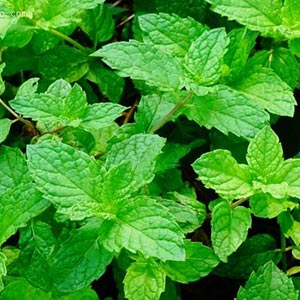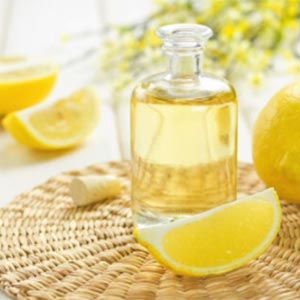


Rosa Rugosa Flower Water
Rosa Rugosa Flower Water is extracted by microwave vacuum low-temperature technology, which is a pure physical method without adding any materials, directly extracting and collecting cell fluid from rose buds. WINGEN GROUP is a professional Rosa Rugosa Flower Water China manufacturer, we have rich experience, please make sure to contact us at info@wingengroup.com if you have demand of this product, we will feedback back to you within 12 hours.
Latin name.: Rosa Crimson, Rosa damascena
Main Assay: Rosa Rugosa Flower Water
Specification available: 100%
CAS No.: N/A
MOQ: 25.0KGS
BRAND: WINGEN
Product Information
Product Name: Rosa Rugosa Flower Water
Latin Name: Rosa Crimson, Rosa Damascena
CAS No.: N/A
Appearance: Colorless liquid with rose aroma
What Is Rosa Rugosa Flower Water?
Rosa Rugosa Flower Water refers to a liquid containing abundant active ingredients extracted from fresh rose petals or buds through specific techniques, such as microwave vacuum low-temperature technology. This liquid retains the essence of roses in the extraction process, including water, rose oil, vitamins and other natural nutrients and various active ingredients.
Rosa Rugosa Flower Water, due to its small molecular structure and high purity, can quickly penetrate deep into the skin, providing sufficient moisture and nutrients to the skin. At the same time, it does not add any preservatives, pigments, essence and other chemicals, leaving a natural and pure characteristics.
What Are the Main Components in Rosa Rugosa Flower Water?
1) water: Small molecule active water.
2) Rose oil: typically contains about 0.2% rose oil, including phenylethanol, citronellol, eugenol, methyl isobutyl phenol, linalool, benzyl alcohol, etc.
3) Other natural ingredients: various vitamins, minerals, sugars, alcohols, lipids, phenols, organic acids, anthocyanins and other natural nutrients.
What are our advantages over other competitors?
Having our own planting bases and factory ensures product stability and consistency, reducing quality fluctuations caused by external suppliers. Self owned factories can achieve large-scale production and reduce the production cost per unit of product. By optimizing the production process and improving production efficiency, costs can be further reduced, thereby gaining a price advantage in the market.
Rosa Rugosa Flower Water: How to Manufacture It?
1) Raw material preparation:
Choose semi open rose crowns or petals picked with dewdrops in the morning, as these flowers or petals have the most abundant aroma and nutrients.
2) Weighing and Placing:
Weigh the separated petals and place them in a certain proportion on the tray of the vacuum extractor. Usually, the lower tray inside the extractor will place more petals to ensure extraction efficiency.
3) Extraction machine settings:
Spread the weighed petals evenly on a tray and place them in a vacuum extractor. Adjust the pressure and temperature of the extraction machine. Generally speaking, the pressure needs to be adjusted between 0.3 and 0.5 megapascals, and the temperature needs to be adjusted around 40 ℃. The temperature should not be too high to avoid damaging the nutritional components of the cell fluid.
4) Extraction process:
Under the set pressure and temperature, use low-temperature distillation to distill the water in the petals into steam. After being cooled by the condensation system, the steam forms Rosa Rugosa Flower Water. The entire process may take several hours to ensure that the cell fluid is completely extracted.
5) Collection and preservation:
After extraction, store the collected rose cell fluid in a stainless steel storage tank filled with nitrogen for future use. This can maintain the freshness and stability of the cell fluid.

The Benefits of Using Rosa Rugosa Flower Water
1) Hydration: helps hydrate and refresh the skin, making it an excellent toner and facial mist.
2) Anti-inflammatory: The anti-inflammatory properties of rose water can help reduce redness and irritation, making it suitable for sensitive skin.
3) Antioxidant: The antioxidants in rose water protect the skin from free radicals, helping to prevent premature aging and damage.
4) Astringent: Rose water has mild astringent properties, which can help tighten pores and improve skin texture.
5) Mood Enhancer: The soothing aroma of rose water can help reduce stress and promote relaxation, making it useful in aromatherapy.
6) Digestive Aid: When used in culinary applications, rose water can aid digestion and add a delightful flavor to dishes and beverages.
How to Use Rosa Rugosa Flower Water?
1) As a Facial Toner: Apply rose water to a cotton pad and gently swipe it over your face after cleansing to remove any residual dirt and tighten pores.
2) As a Facial Mist: Transfer rose water to a spray bottle and mist it over your face throughout the day to refresh and hydrate your skin.
3) In Aromatherapy: Add a few drops of rose water to a diffuser to fill your space with its calming fragrance.
4) In Cooking: Use rose water to flavor desserts, beverages, and savory dishes. It pairs well with ingredients like vanilla, cardamom, and citrus.
5) In Bathing: Add a few tablespoons of rose water to your bath for a relaxing and fragrant soak.
6) Nourish hair: Apply an appropriate amount of Rose Rugosa Flower Water to your hair, especially on dry and damaged areas. Or put it into a spray bottle and gently spray it on your hair.
7) Material for drinking: Using Rose Rugosa Flower Water as a base liquor or seasoning, and then mixing it with fruit juice, alcoholic beverages, etc., to create a unique flavor cocktail or fruit juice beverage. Enhance the aroma and taste of beverages, making them fresher and sweeter.
What’s the Difference Between Rosa Rugosa Flower Water and Rose Hydrosol?
Rosa Rugosa Flower Water: It is the liquid evaporated from rose petals or buds during low-temperature drying and collected through physical methods. Specifically, it uses microwave vacuum low-temperature technology for extraction, placing the rose buds in a sealed microwave vacuum chamber without adding any materials, and directly extracting the cell fluid from the rose buds under low-temperature conditions using pure physical methods.
Rose Hydrosol, is a 100% saturated distillate obtained from roses during the extraction of essential oils. It is a by-product of essential oils. During the distillation and extraction process, the oil and water will separate. Due to different densities, the essential oil will float on top, while the water will settle below, which is called Rose Hydrosol.


